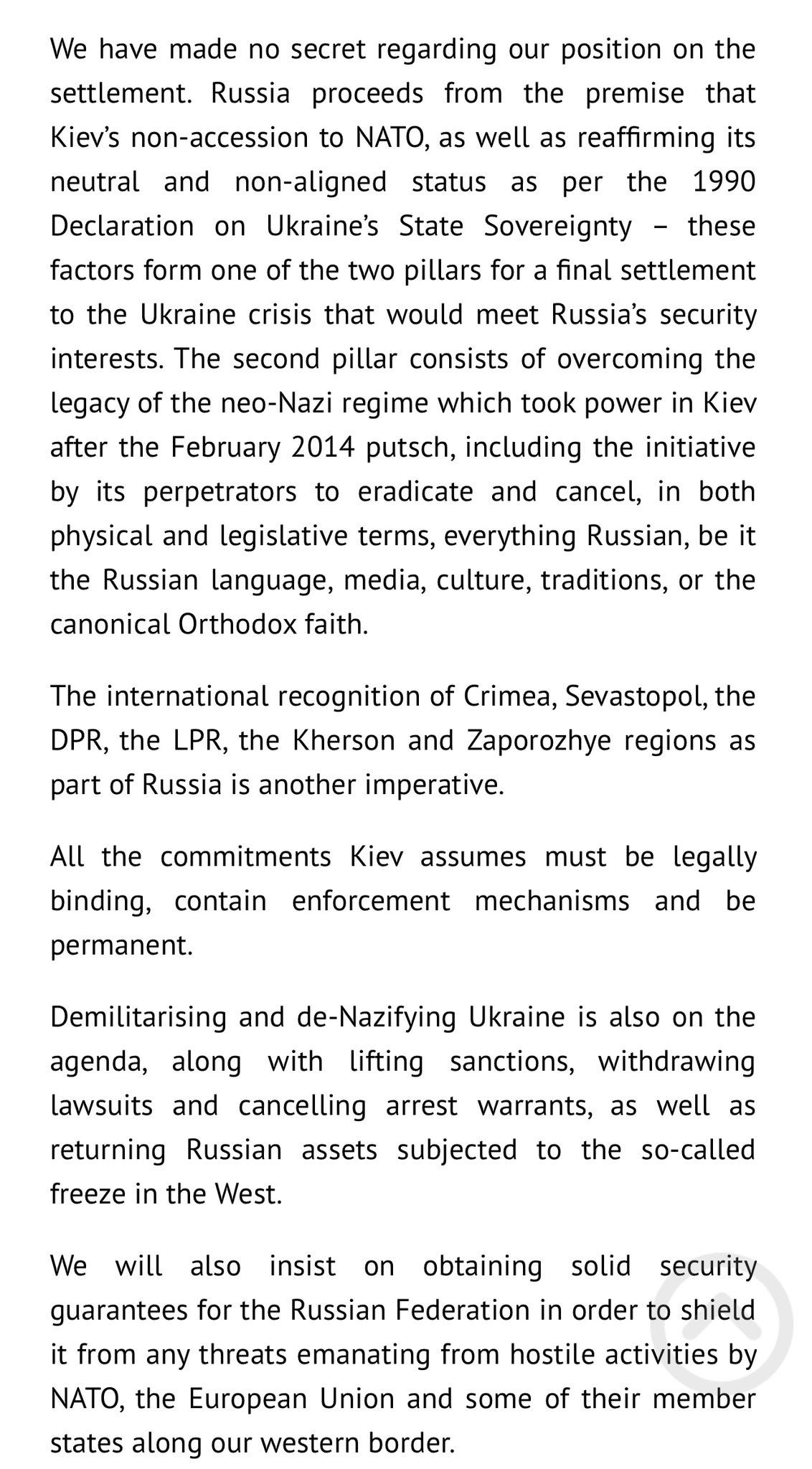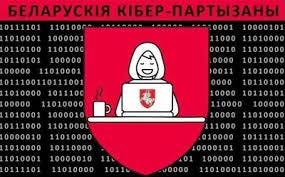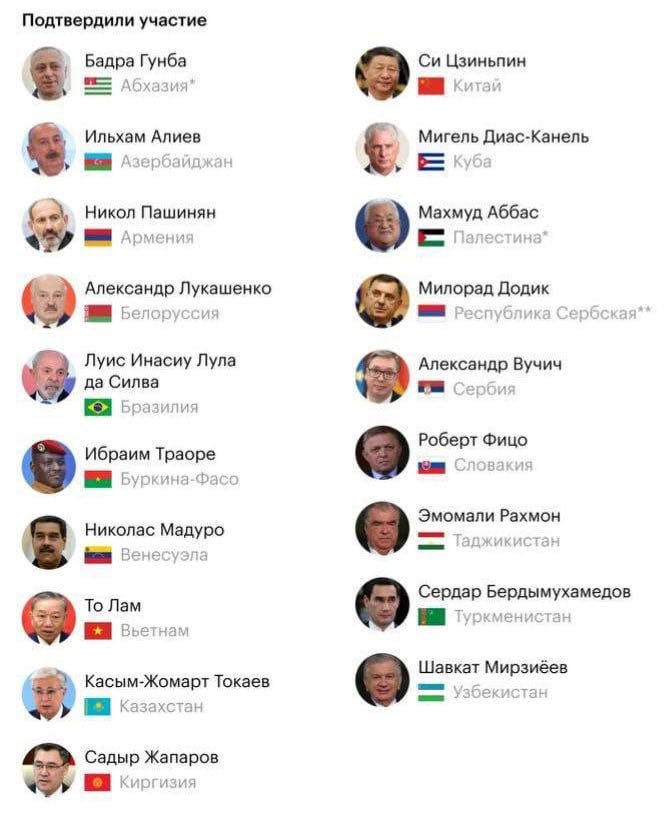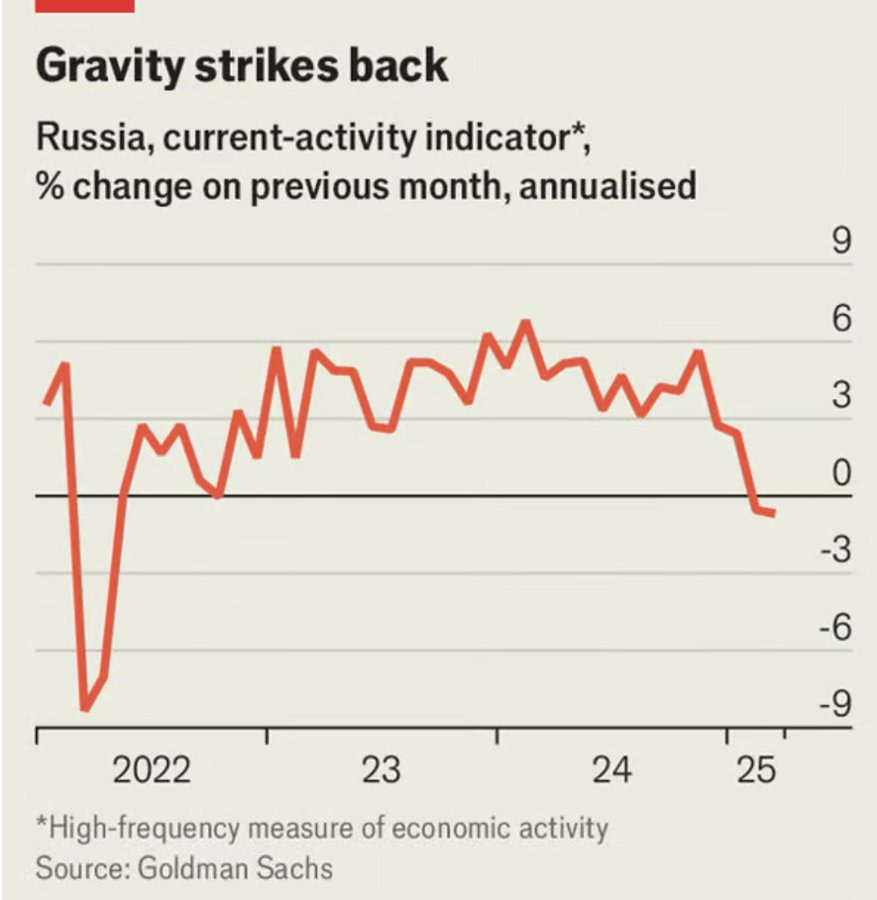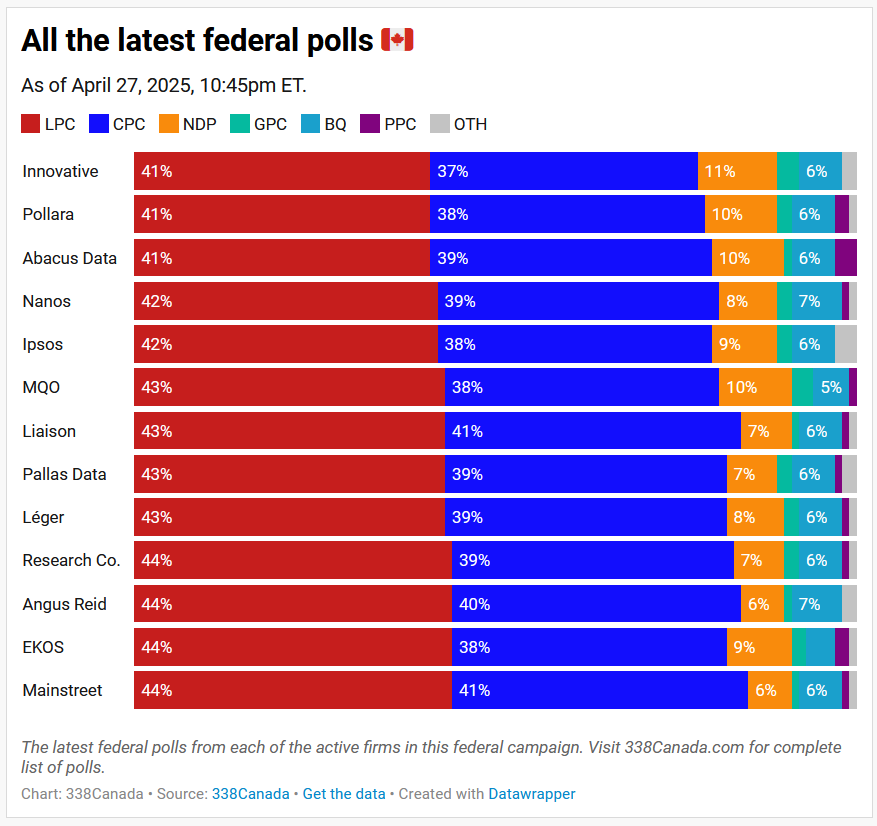Apr 29: E-Stories
InUkraine Blackouts SitRep KremniyEl BehindLines Russia-China Europe Giannelli BelarusCyberPartisans Raufoglu NKTroops Lavrov Trump EUArmaments May9Guests CanadaElects Orban iFact BurkinaFaso
Catching up…
For specific news about Trump, his regime and its dealings with Russia, I direct you to Olga’s substack. She and Julie Roginsky publish a weekly podcast, “Pax Americana”, which is highly informative.
For a general view of news from various geopolitical threatres, Scott’s EA Worldview is always superb.
Let’s get going…
Stories we’re following…
Russian attacks killed 6 and injured 13 injured in Ukraine over past day. Russian attacks across Ukrainian regions over the past day killed at least six civilians and injured at least 13, regional authorities reported on April 28.
Russia has officially declared its conditions for ending the war, according to MFA Lavrov. Doesn’t really look like Russia is ceding anything.
Denying Ukraine NATO membership makes it easier for Russia to plan aggression, says EU Defense Commissioner Andrius Kubilius. He stressed that Russia fears not a NATO attack, but NATO protecting Ukraine from future invasions.
Trump says Ukraine is ready to give up Crimea? "Is Zelensky ready to give up Crimea?" Trump: "I think so. Don’t talk to me about Crimea, talk to Biden and Obama."
Unbelievable: Putin announces 3-day truce on Victory Day's 80th anniversary. Russian President Vladimir Putin announced a so-called "humanitarian" truce from May 8 until midnight on May 11.
Mo: why not do it now? Trump is already compromised in his ability to shape current events pertaining to Ukraine and Russia, especially Russia.
Oh look, I’m not the only one saying it: “Why wait until May 8? If Russia can cease fire for 3 days, it can stop it today — if it truly wants peace. No need for parades, just act now,” — Ukraine’s Deputy FM Andriy Sybiha on Putin’s self-declared truce proposal.
A massive blackout is sweeping across Spain, hitting major cities like Madrid, Barcelona, Seville, Granada, and even Barajas Airport. Portugal and parts of France are also going dark. Authorities have explained that there is a rare atmospheric phenomenon which has caused the synchronisation of systems to fail.
EPA reports that Pedro Sanchez is currently hosting an "extraordinary" meeting of Spain's national security council, the prime minister's press office says in a statement on social media, external.
Combat Situation
Overnight in Bryansk, drones struck the "Kremniy EL" microelectronics plant — again. OSINT sources report multiple hits. The factory produces parts for "Pantsir" air defenses and "Iskander" missiles. It's the fifth attack on the site since the war began.
Explosions reported overnight in occupied Crimea’s Chornomorske district — with Russian sources claiming a strike near Vnukovo village. Damage inflicted is yet to be determined.
Kyiv's Special Forces report raid on Russian positions in Kursk Oblast, dispute Moscow's claim of recapture. "While the Chief of the General Staff of the Russian Armed Forces, (Valery) Gerasimov, reports the 'liberation' of the Kursk region from Ukraine’s Security and Defense Forces, operators of the 73rd Naval Special Operations Center continue to carry out missions in the area successfully," the military said.
Behind the Lines
WSJ: Russia is preparing a new army near NATO borders, with intel suggesting they’re gearing up for conflict. Bases in Petrozavodsk are being expanded, new military facilities built, and railways upgraded along borders with Finland, Estonia, and Norway.
Marco Giannelli, Trump-Zelensky meeting 'potentially historic', says Ukrainian leader
Donald Trump — who previously said US businesses on Ukrainian soil would be deterrent enough — is now willing to allow Kyiv to benefit from US intelligence as part of a post-peace deal.
“The US won’t use its troops, but allowing Ukraine access to intelligence gained from systems which Europe simply doesn’t possess would be key in boosting Europe’s deterrence posture,” said Nathalie Vogel, Research Fellow at the IWP Center for Intermarium Studies.
The Telegraph: British troops sent to Ukraine won’t go near the front lines — their mission will be to train Ukrainian forces, not to fight - The Telegraph. "Our focus is on rebuilding a modern, capable Ukrainian army," said UK Defence Secretary John Healey.
Mo: According to my sources, the plan to send foreign national troops to Ukraine has been floating for over a year. The thinking is to place these troops in Western Ukraine to protect sensitive infrastructure sites as well as transportation hubs, while Ukrainian troops could concentrate their forces in the east. Sending NATO troops to the front lines was not seriously contemplated for many reasons.
Ukrainian expert fears: Europe will not be able to protect itself from Russian cyber threats. Main points - cyber defense does not work without offensive capability and the Russian threat will not go away even if there is a ceasefire in Ukraine. Serhiy Prokopenko:
– EU countries are in a much more vulnerable position than Ukraine, because we have 11 years of experience in cyberwar against Russia, Natalija Tkatshuk adds.
– We have experts who have learned how to build defenses against Russian hackers. We also have the legal right to fight back because we are at war. European countries are not at war, but Russia is doing the same to them, that is, attacking critical infrastructure. And European countries can do nothing but observe the situation, he explains.
Axios: The Trump admin is quietly preparing for new talks with North Korea. Trump wants to reconnect with Kim Jong Un, and the U.S. national security team is getting ready.
EuroMaidan Press, Inside Belarus’s Cyber-Partisans who derailed Putin’s three-day war
As Russian tanks stormed toward Kyiv in February 2022, riding Belarusian railways straight to the front, sudden cyberattacks shattered the system, freezing Russia’s assault when every second counted.
Born under one of the world’s most brutal dictatorships, these digital insurgents exposed the secret police behind Lukashenka’s regime, launched one of the largest cyberattacks on the Kremlin, and turned Belarus from a silent launchpad into a hidden battlefield where Putin’s plans are no longer safe in the place he once trusted most.
The Belarusian Cyber Partisans emerged in 2020, born from the mass protests against Lukashenka’s stolen election. Formed by anonymous tech experts, the movement initially set out to expose repression, sabotage surveillance, and cripple the security forces keeping the regime alive.
Meanwhile in Russia & China…
Russia in Africa: Burkina Faso's military government has granted Nordgold, a company linked to Russian oligarch Alexei Mordashov, a license to develop a gold project, the Niou deposit. The 52.8-square-kilometre project is located in a major artisanal mining area and is likely to put local miners out of work.
Russian authorities are preparing to further reduce the share of imported drugs in the public healthcare system. In the list of vital and essential drugs (VED), which is used within the framework of the state guarantees program for free medical care, 90% of drugs should be domestic, Prime Minister Mikhail Mishustin said on Monday.
The Kremlin’s May 9th guest list: If the russian media is to be believed, the heads of state of Azerbaijan, Armenia, Belarus, China, Cuba, Serbia, Slovakia, Venezuela, Burkina Faso, and others have already confirmed their attendance.
The Economist, Vladimir Putin’s money machine is sputtering
Russia’s worries come after three years in which its economy outperformed almost all forecasts, owing to the combination of a fiscal splurge, high commodity prices and the militarisation of the economy. Following the full-scale invasion of Ukraine in 2022, economists predicted a contraction in annual GDP of up to 15%. In the event, GDP fell by 1.4% that year, before expanding by 4.1% in 2023 and 4.3% in 2024. Consumer confidence neared record highs. As it started to seem that Donald Trump might give Vladimir Putin what he wants to end his war on Ukraine, some expected Russia’s economy to accelerate even further in 2025.
What is behind the sudden slowdown?
The first relates to what Russia’s central bank euphemistically calls the “structural transformation” of the economy. The second factor is monetary policy. And finally, external conditions have soured. As America’s trade war has escalated, global growth forecasts have plunged, and oil prices have followed.
BBC: North Korea has for the first time confirmed that it sent troops to fight for Russia against Ukraine.
In a report on state news agency KCNA, Pyongyang's military claimed its soldiers helped Russian forces "completely liberate" the Kursk border region, according to an order given by leader Kim Jong Un.
Pyongyang's announcement comes just days after Russian Chief of Staff Valery Gerasimov praised the "heroism" of North Korean troops, the first time Moscow has publicly acknowledged their involvement.
Western officials had earlier told the BBC they believed at least 1,000 of the 11,000 troops sent from North Korea had been killed over three months.
Remember: the Kremlin has denied the presence of North Korean troops in Ukraine for quite some time, and then Peskov admitted they were there.
EU says North Korean backing shows Russia's desperation. It also sends a very clear message: Russia is not interested in peace; on the contrary, its goal remains to suppress Ukraine, EU’s foreign policy spox Anita Hipper says.
In the EU…
Ukraine has received 400,000 shells this year through the “Czech initiative,” says Czech Defense Minister. Funding is secured until autumn, aiming to send 125,000 shells per month. Canada, Norway, Denmark, and the Netherlands recently contributed extra.
FT: Malta sold passports to Russians under EU/US sanctions via its "golden visa" scheme. Some used them to bypass entry bans. EU lawsuit over Malta’s citizenship-for-sale program heads to court Tuesday.
Orban on why the EU is just so horrible. On his Hungarian propaganda channels, Orban regularly disparages the EU, and its ‘authoritarian’ ways. Here’s a snippet of his views, which include the EU witholding funds that ‘belong’ to Hungarians, and how the EU has now become ‘pro-war’—supports Ukraine. Orban’s position is dictated by Russia’s successful coercion of Orban after 2012.
Besides the Russians, Hungary has also become a haven for Chinese investments. Under Sino-Russian coercive interdependence, Hungary can skirt EU regulations regarding just about anything. His regime is rife with corruption and anti-democratic legislation. Hungary has become a little safe haven for Russian operations against the European Union.
Ukraine has already secured $50B in income from frozen Russian assets, PM Shmyhal says. Funds are used for budget, military needs, and rapid recovery. Full confiscation remains the goal — plus a proposed tariff on Russian imports to fund Ukraine’s rebuild.
In other news…
Final polls before the Canadian federal election.
Trump issued a statement overnight on the eve of Canada’s election, again threatening the country’s independent sovereignty, and describing the border between the two nations as an “artificially drawn line from many years ago”, in another awkward intervention for Conservative party leader Pierre Poilievre.
The Globe and Mail reports that authorities have sent out a record number of voting packs to overseas voters, including to 20,000 new voters living in the US. Over 100,000 overseas voting kits have been sent out, of which 44,623 had been returned by 26 April.
EKOS poll: “EKOS was alone in noting that the massive Conservative lead had evaporated by the end of January and we then saw the Liberals moving into what appeared to be a majority position roughly a month later. This has been the largest transformation of the voter landscape in modern Canadian history.
US State Department Official Readout: Today, the United States is sanctioning three vessels and their owners for supporting the Iran-backed Houthis by delivering refined petroleum products to a Houthi-controlled port.
The United States is committed to disrupting the Houthis’ illicit revenue generation, financial facilitators, and suppliers as part of our whole-of-government approach to eliminating threats to freedom of navigation in the Red Sea.
Mo: Please read the article below. It explains how oil is transported and provenance can be legally hidden from authorities. Unfortunately, this is not an easy problem to fix with sanctions.
Ghost Cargo: The Hidden Journey of Sanctioned Oil to Europe
Sources explained that a ship can leave port without its cargo being sold, meaning the crew may not know the final destination of the oil. The ship’s owner informs the captain mid-voyage that the oil has been sold en route. In such cases, the cargo is transferred via pipelines to another tanker in neutral waters where no country’s customs jurisdiction applies. This process, known as Ship-to-Ship Transfer (STS), is an entirely legal method of selling oil mid-journey practiced before the war. However, post-sanctions, it has become a loophole for selling Russian oil.

Story of the Conclave with Times Radio: Following the death of Pope Francis on Easter Monday, cardinals from across the world will now descend on Vatican City in Rome to choose the next Pope. The Oscar-nominated film Conclave dramatised the political machinations and backstabbing involved in choosing a successor - so, with incriminating dossiers and secret plots, is fact about to mirror fiction?





